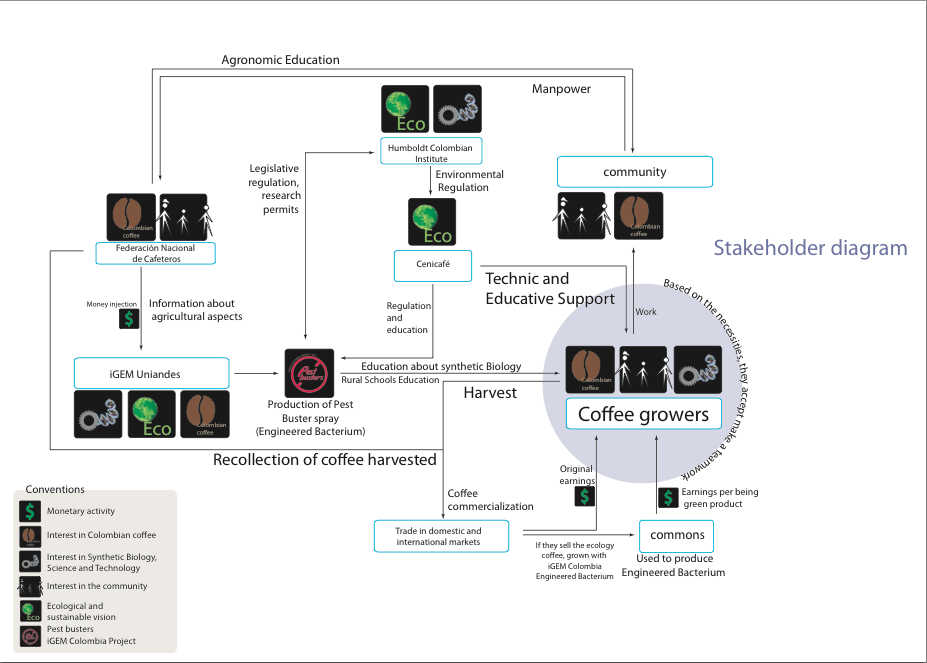Team:Colombia/Human/Social: Schools
From 2012.igem.org
Template:Https://2012.igem.org/User:Tabima
Social: Schools and Coffee Growers
The basic objectives of the social activities are the integration of the team with the community as well as the divulgation and teaching of basic concepts in synthetic biology through our project’s idea.
[http://issuu.com/dianasanchezbarrios/docs/hp-igem-print]
The Stakeholder diagram
The different problems associated with bad cultural practices and excessive use of pesticides in coffee agriculture result in great economic losses. The stakeholders diagram proposes an important interaction to establish a possible community service model. The service model suggests that the coffee growers should work together to acquire the different crop materials at a lower price. However, the interaction of different institutions in charge of providing technical and educational support on synthetic biology to the community is necessary. This support will help the coffee growers have a better understanding of the strategy designed by iGem Colombia team, which will function as a pest control in crops. Pest busters helps coffee growers grow an eco-friendly coffee based on the lower use of pesticides. The main idea of creating these interactions is to encourage teamwork among coffee growers, which will help them to generate an additional income. Focusing on teamwork culture, the additional incomes would go to a community fund that will help funding the next generation of Pest Busters. Having a common fund enables different interactions in the community and helps creating a savings culture among the coffee growers to secure materials needed for later sowings.
 "
"
